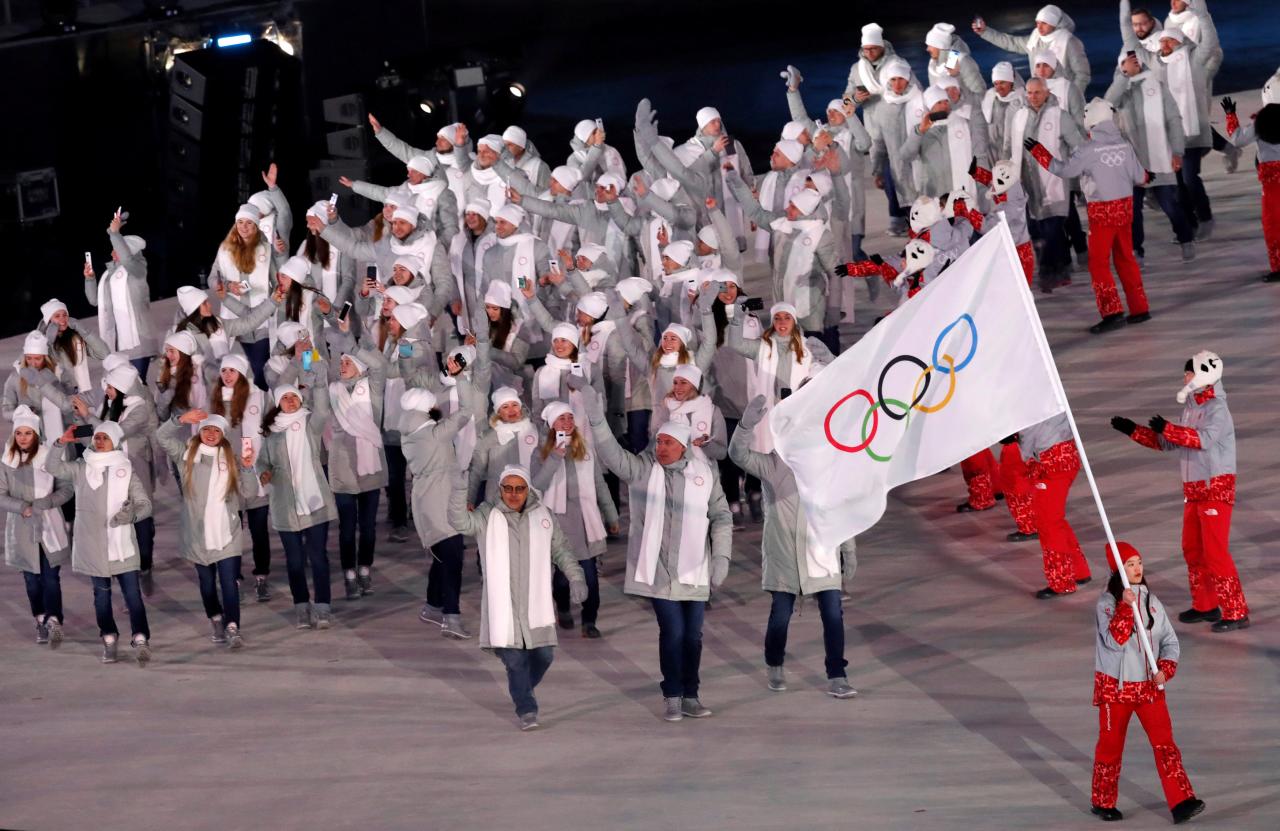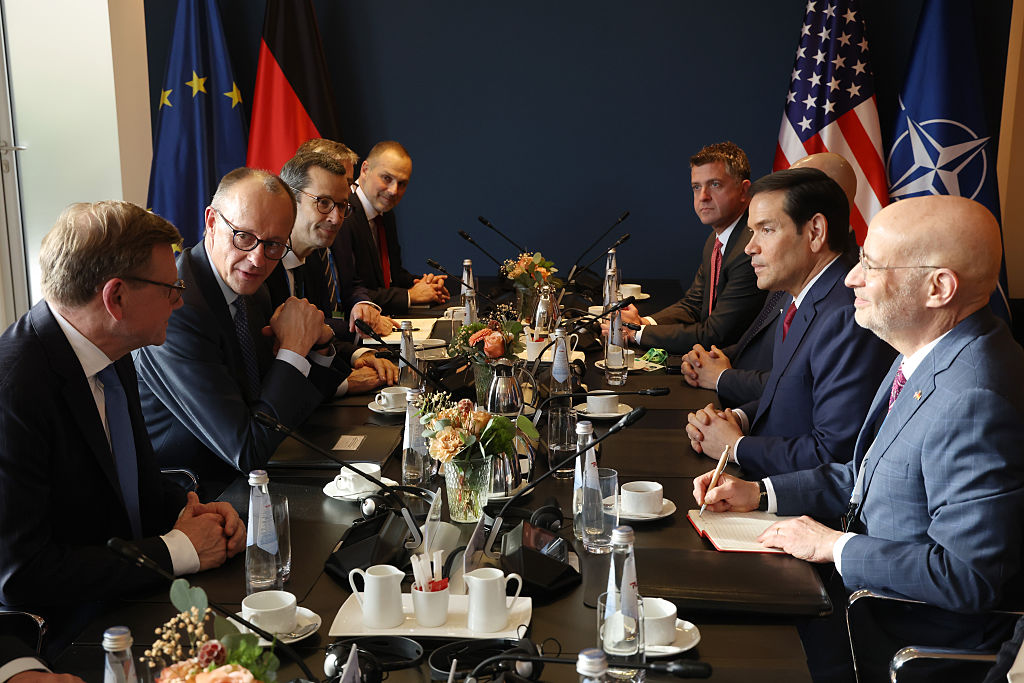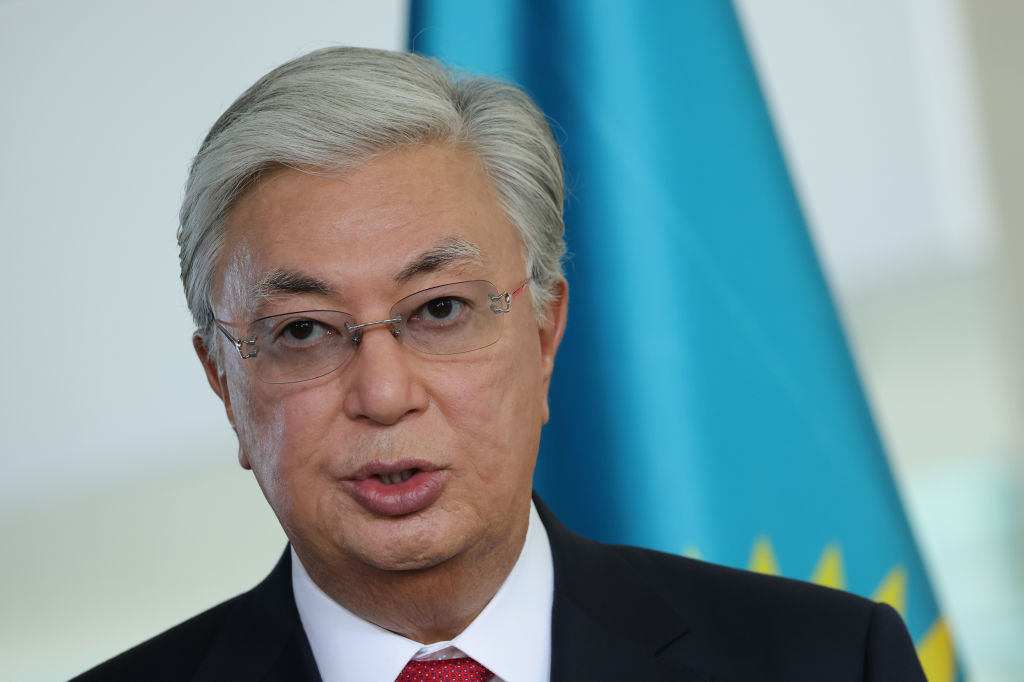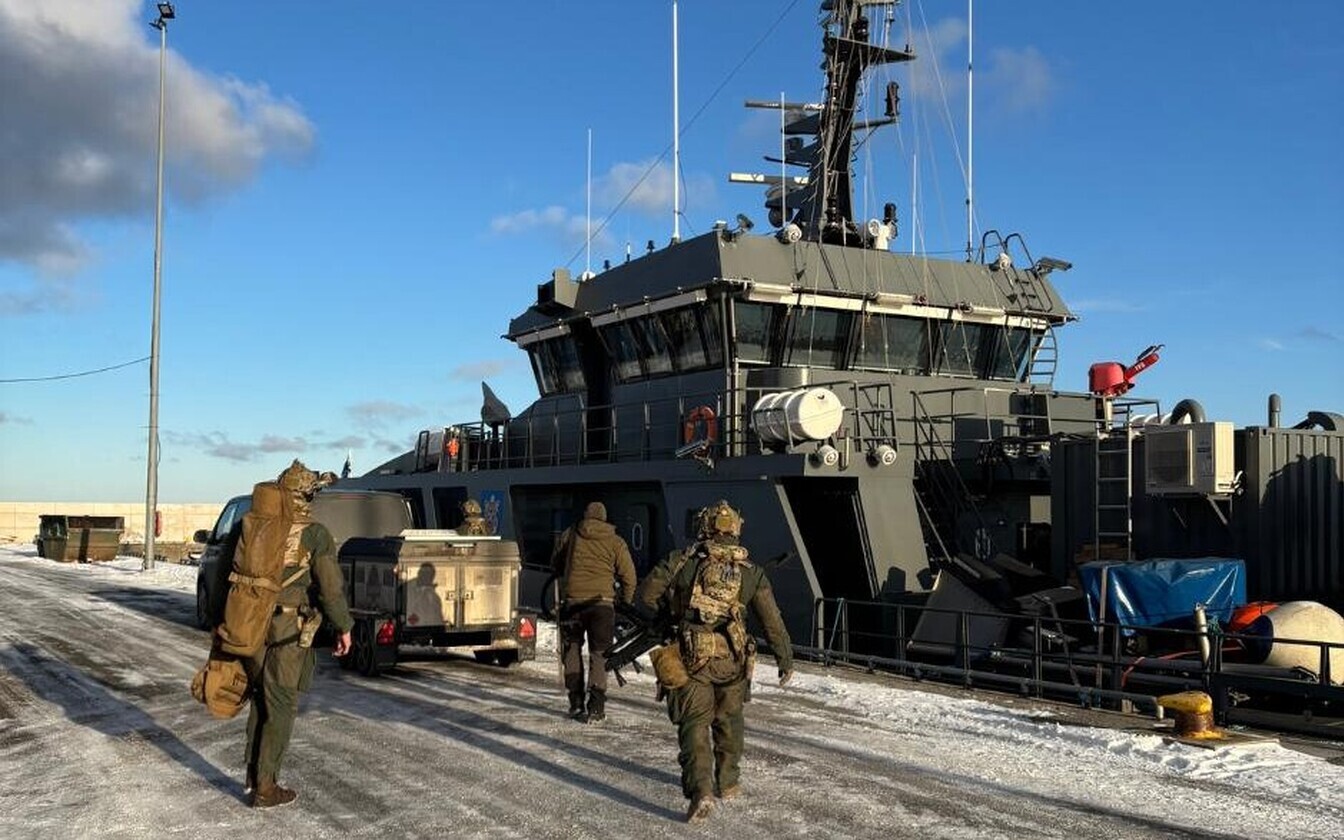
Russia Experiences Olympic Blues, and Patriotic Bravado Brings No Solace
Russia Experiences Olympic Blues, and Patriotic Bravado Brings No Solace
About 80 Russian athletes marched in the opening ceremony of the 2018 Winter Olympic Games in PyeongChang, South Korea, last Friday (February 9), under the Olympic flag carried by a Korean volunteer. Only 168 individuals were invited by the International Olympic Committee (IOC) to partake as “Olympic athletes from Russia,” but many opted not to wave to the cheerful crowd, in solidarity with dozens of their comrades who were not granted this privilege. This showing capped the long scandal caused by the massive use of doping in Russian sport, which had resulted in the IOC decision to invite to the 2018 Olympics only those athletes beyond suspicion. Moscow officially accepted that outcome, but nobody in Russia expected the list to be so short. Final hopes were destroyed last Friday morning, when the Court of Arbitration for Sport (CAS) turned down 47 appeals of Russian skiers, skaters, ice hockey players and other athletes (Gazeta.ru, February 9). President Vladimir Putin tried to console his countrymen by announcing that Russia was “beyond doubt a leader in world sport” (Kremlin.ru, February 7).
The Olympic Games are traditionally a hugely important event for Russians, so the IOC decision to deny Russia the right to fly its flag in PyeongChang was recognized by public opinion as the second most important event in 2017, right after the war in Syria (Levada.ru, February 1). As many as a third of Russians are against their country partaking in the Olympics, despite Putin’s rejection of any boycott (RIA Novosti, February 9). Patriotically minded politicians and sport bureaucrats have been loudly lamenting the “discrimination” of Russian athletes, and some have called for the resignation of the IOC president, Thomas Bach (Newsru.com, February 9). Meanwhile, their demands to disband the World Anti-Doping Agency (WADA), which investigated the case of Russia’s cover-up of the doping abuse at the 2014 Sochi Olympics, are about as sensible as promises to organize “alternative games” for the banned athletes (RBC, February 9).
Much attention is focused, meanwhile, on the political intrigues around the Olympics, in particular the meeting between South Korea’s President Moon Jae-in and Kim Yo Jong, the sister of North Korean dictator Kim Jong Un (Novaya Gazeta, February 9). Russian commentators are eager to juxtapose this rapprochement with the tough stance demonstrated by the United States’ Vice President Michael Pence, who attended the opening ceremony in PyeongChang (Rossiiskaya Gazeta, February 7). They are, however, at a loss when it comes to interpreting Moscow’s position because even its “principled” objections against new North Korean sanctions could be instantly overruled if Beijing agrees to tighten the sanctions regime, leaving Russia embarrassingly irrelevant (Nezavisimaya Gazeta, February 8). Russia indeed finds itself on the distant margin of the big geopolitical posturing in East Asia. The only way to assert Russia’s importance was for Moscow to recently stage military exercises in the disputed South Kurile Islands, much to Japan’s displeasure (RIA Novosti, February 7).
In addition to the humiliating Olympic punishment, a shocking setback occurred in another area Russia used to take so much pride in—space exploration. The launch of the Falcon Heavy rocket by the private SpaceX Corp., owned by Elon Musk, was a major breakthrough by any account (Kommersant, February 7). The choice of the load for this new space delivery system—Musk’s own red Tesla Roadster, which is now traveling toward Mars—added a touch of joyful free spirit that has long been missing in the space-launch sector amid the routine work of putting satellites into orbit (Novaya Gazeta, February 9). Russia’s space agency Roscosmos called the Falcon Heavy launch a “very nice trick” and asserted it would not consider SpaceX as a serious competitor (RIA Novosti, February 8). The irony of the situation is that Musk has much better reason to disregard Roscosmos as a competitor, considering that the latter continues to rely on an old Soviet technological base and has been badly affected by Western sanctions, (Republic.ru, February 7; see EDM, February 1).
The Russian space industry, much like Russian sport, suffers from a severe and domineering over-bureaucratization (Ezhednevny Zhurnal, February 8). Besides enforcing rigid rules and suppressing initiative, this self-serving super-structure breeds corruption. In Russian athletics, the doping problem is a direct consequence of this all-penetrating rot. The IOC expects that the unprecedented punishment will encourage Russia to clean up its tarnished act; but the Russian bureaucracy is trying to defend its privileges by launching a deceitful propaganda campaign (Novaya Gazeta, February 5). Putin has sought to downplay the damage to Russia’s reputation and to demonstrate a determination to fight against corruption by unleashing selective punishment, for instance against a large group of officials in Dagestan, which might yet trigger a new escalation of clan infighting there (Republic.ru, February 8).
The real struggle against corruption, however, is being waged boldly and furiously by Alexei Navalny, a leader of the anti-Putin opposition. His latest investigation establishes a connection between Oleg Deripaska, one of Russia’s most corrupt oligarchs, and Sergei Prihodko, a deputy prime minister who, for many years, has been a key foreign policy advisor to Putin (Navalny.com, February 9). Prihodko hides behind blank denials, and Deripaska is attempting to shut down the investigation by a court order issued in the district that he, for all intents and purposes, owns (RBC, February 9; Newsru.com, February 10). What makes this story even more potentially explosive is Deripaska’s alleged involvement in the multi-pronged Russian interference in the US presidential elections, being investigated by special counsel Robert Mueller (Moscow Echo, February 10).
Millions of Russian sports fan are indignant about the unfair treatment of dozens of athletes who were never found guilty of doping but were still denied the opportunity to partake in the Olympic competitions. It is easy to fan this outrage, and the official propaganda is working hard on that. Yet, most fans also know about dozens of cases in which their favorites were, indeed, caught engaging in doping—and they also know that sport bureaucrats are never punished for it. The culture of corruption has matured and blossomed during the 18 years of Putin’s regime, and it is set to further grow as the irreplaceable ruler prepares to claim yet another presidential term. The oligarchs and power-holders who constitute Putin’s court assume that they own and control everything in Russia. But the anti-Western emotional charge in the masses of “have-nots,” which is so usefully sustained, can suddenly turn its attention on the real culprits who bring Russia disrepute and decline.


